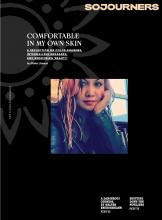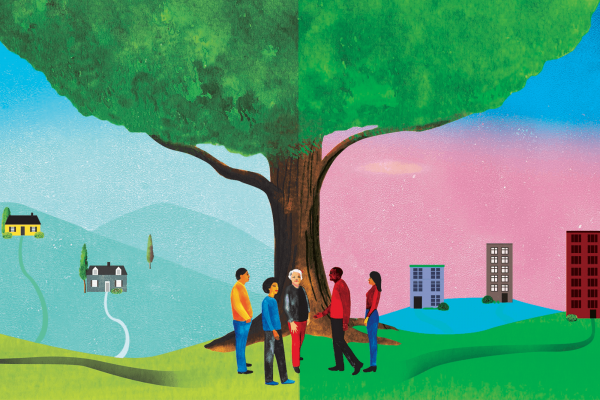THIS SUMMER, WHILE working on a forthcoming book, I spent a great deal of time thinking, praying, and wrestling with identifying a moral vision and narrative that would be capable of uniting our country and counteracting its perilous levels of polarization. When I look back over American history, “the beloved community” stands out as perhaps the most hopeful and transformational moral vision, one that I believe can be recast and reimagined to unite most Americans around a bigger story of us. The beloved community combines civic ideals with deep spiritual and religious values—that’s why it’s a vision that can resonate across religions and with those who check “none of the above” on religious-identification surveys.
The term was coined in the early days of the 20th century by the philosopher-theologian Josiah Royce. However, it was Martin Luther King Jr., as well as other leaders in the civil rights struggle, who popularized the term. Dr. King spoke about the beloved community in a 1956 speech he gave at a rally following the Supreme Court decision desegregating buses in Montgomery, Ala. King said, “the end is reconciliation; the end is redemption; the end is the creation of the beloved community. It is this type of spirit and this type of love that can transform opponents into friends. It is this type of goodwill that will transform the deep gloom of the old age into the exuberant gladness of the new age. It is this love which will bring about miracles in the hearts of [people].”
Read the Full Article

